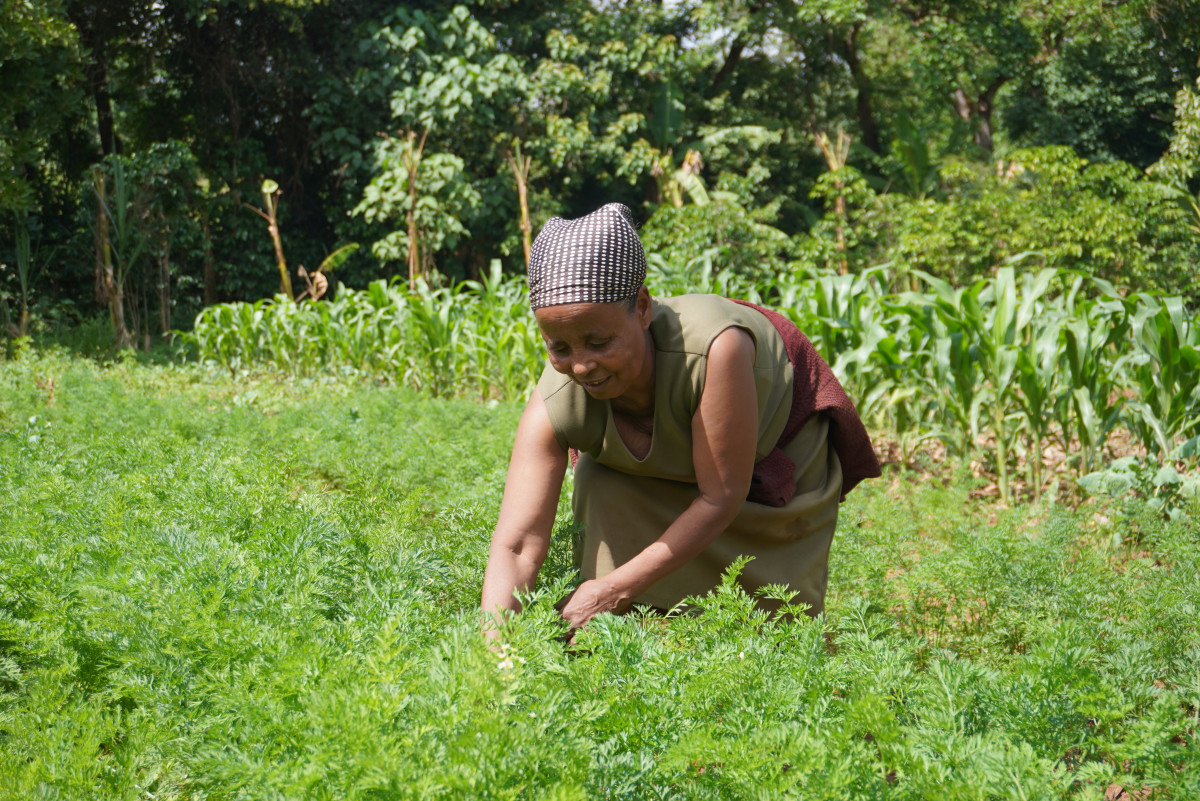Cultivating Change through Earthworms in Ethiopia
Published: Oct 2, 2025 Reading time: 3 minutes Share: Share an articleIn Ethiopia, where farmers often struggle with soil degradation and unpredictable rainfall, one woman is leading a quiet transformation. Amarech Abera was chosen by agricultural experts and local leaders as a model farmer, embraced an amazing practice that has changed her life— vermicompost.

Amarech Abera has been a farmer all of her life; as usual in this area, it is her only livelihood. Happily she can say that she has never done better. Thanks to new farming methods that she learnt from our team at PIN Ethiopia, she is able to earn enough money to live reasonably well.
One of the techniques we taught her is vermicomposting. This involves mixing dried leaves, banana plant and cow dung in a box. In 45 days, earthworms transform it to high-quality organic fertiliser.
As model farmer, Amarech shares her knowledge with her neighbours, she shows them the steps to take and materials to produce in the right amounts, and she teaches them to avoid harmful materials like eucalyptus and gravel.
Scaling Change
What makes Amarech’s story remarkable is not just her personal success, it’s how it spreads. The earthworms she breeds and the knowledge she shares are multiplying across her community. Her neighbours are copying her vermicompost techniques and diversifying their livelihoods through poultry, vegetables and orange fleshed sweet potato farming. Together we are helping others adopt climate-smart agricultural practices.
A Message of Inspiration
Amarech’s journey shows that sustainable farming is possible, profitable, and powerful.
Her story reminds us that empowering local farmers with climate-smart practice creates ripples of transformation nurturing both the soil and the spirit of entire communities.
With funding from the Czech Development Agency (CZDA), we contribute to a green economy that strengthens livelihoods, and builds resilience against climate change.
PIN is empowering women by diversifying their livelihoods beyond traditional agriculture, improving their economic resilience through sustainable, climate-resilient value chains, and enhancing access to education, training, and financial services.
In total, PIN promoted the practice of vermicomposting among 93 farmers across 8 woredas. Today, it is widely adopted by many more farmers, villages, and communities.



